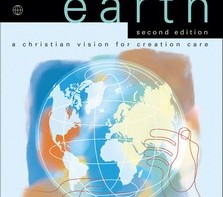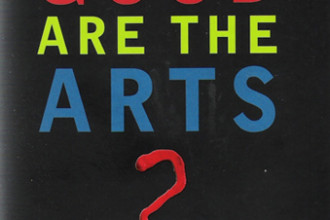Trevor Hart is Professor of Divinity and the Director of the Institute for Theology, Imagination, and the Arts at the University of St Andrews. He is author of many books and essays dealing with eschatology and imagination, including “Imagination for the Kingdom of God? Hope, Promise, and the Transformation of an Imagined Future” in God Will Be All in All.
* * *
“In root distinction from leaf, from the animal, man alone can construct and parse the grammar of hope.” ~George Steiner, Real Presences
Christian faith is fundamentally expectant, forward looking and forward moving, and theology in all its departments, therefore, is and must always be spes quaerens intellectum – hope seeking understanding. Faith’s grasp on eschatological realities is, though, inherently and inevitably of a highly imaginative sort, having to do with some putative state of affairs more or less remote from our experience of the given present. Indeed, the larger part of eschatological belief has to do precisely with another world lying beyond the limits of this one and its history, beyond the range of any historical human experience, and thus beyond the normal working reach of the words and concepts we use to make sense of that experience.
Here our mundane words and ideas are stretched beyond the limits of any elasticity they naturally possess, and the most they can do is to guide the trajectories of our imagining in the right direction. If our eschatology is to be theologically responsible, therefore, we must resist any literalizing tendency while yet refusing to underestimate the epistemic status of the imaginative as a respectable form of ‘knowledge’ in the broader sense. Knowledge of a ‘scientific’ sort (so valued in the various milieu of the modern world) is not the only sort of knowledge we enjoy as human beings, and rarely the most profound.
Again, (and this needs to be heard loudly and clearly) to insist upon the imaginative form such knowing takes does in no way undercut or contradict the claim that it is revealed, unless we suppose that all divine revealing occurs in and through epistemic forms of one particular (unimaginative) type. But those who grant the text of Christian Scripture a primary place as the authoritative locus of God’s self-revealing can hardly suppose this. On the contrary, the Old and New Testaments alike are rich repositories of divinely inspired imagining, full to the brim with poetry, parable and story, and telling of a God who draws his people forward precisely by enabling them to see visions and dream dreams.
In matters of eschatology, as elsewhere, God makes himself and his purposes and promises known not by downloading a body of digitised factual data, but by taking our imaginations captive, lifting us up through Spirit-filled reading to ‘see’ and ‘taste’ the substance of things lying way beyond our proper purview and calling us in turn responsibly to imagine further, allowing our extrapolations and ornamentations (which duly take a dynamic ‘lived’ form) to be guided and tested by the trajectories of divinely furnished prototypes. The trajectories along which Christian eschatological imagining travels are indeed set securely in Scripture itself, which encourages it to extrapolate both positively and negatively from features of life in the here-and-now.
We cannot know what life in God’s new creation will look like; but the vision of the prophets urges us to imagine a world in which all that is good and worthwhile and fulfilling in human life will be taken up and transfigured and handed back to us with unprecedented, unimaginable value added (‘all this, and much more besides’), while all that is evil and distorts or destroys human life in this world will be notable only by its absence. Concomitantly, images of what it might mean to be excluded from God’s presence for eternity are ones drawn from the very darkest of human experiences – images of misery, pain, decay and destruction. Thus eschatological thinking, though it may be done in a very precise and disciplined manner, will nonetheless always be, in Jürgen Moltmann’s phrase, ‘imagination for the kingdom of God’.






Thanks to Trevor Hart for helping to re-focus our attention on the thing we seem often to avoid in our near obsession with one sort of knowing.
That thing can really only be seen with the eyes of the imagination, and is, in a word, “glory” . Something ill understood except in, as T. S. Eliot in the Four Quartets says, “hints and guesses/Hints followed by guesses;/…The hint half guessed, the gift half understood, is Incarnation”.
This afternoon’s Royal Wedding, if it is anything ought to be seen as an adumbration of that future we are commanded always and everywhere to imagine, where the world ends neither in a bang nor a whimper, but in a wedding feast.
Wonderful ‘stuff’. Many thanks Trevor.